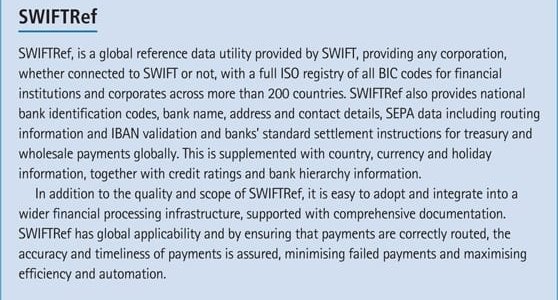by Suresh Dutt, Banking Connectivity Specialist, IATA
Founded in Cuba in 1945, The International Air Transport Association (IATA) is the trade association for the world’s airlines, representing around 240 airlines across 118 countries, or 84% of total air traffic. IATA supports many areas of aviation activity and helps to formulate industry policy on critical aviation issues. Headquartered in Montreal, Canada with an executive office in Geneva, Switzerland, IATA also has regional offices in Amman, Beijing, Brussels, Johannesburg, Madrid, Miami, Moscow, Singapore and Washington. In 2012, IATA handled cash flow of $371.5bn, including $51.9bn through its clearing house, $36.1bn in currency clearing and $251.8bn through its Billing and Settlement Plan.
In this article, Suresh Dutt, SWIFT Banking Connectivity Specialist at IATA discusses how SWIFT, together with internal payments processing system IRIS, has delivered improved efficiency, automation and control over payments, with straight-through-processing optimised through the use of SWIFTRef for referential integrity.
Payments and connectivity challenges
Before implementing SWIFT, our bank communications was fragmented and labour-intensive to maintain, with multiple banking platforms, diverse formats and messaging standards, disparate security mechanisms and varying levels of reliability. We also had different internal systems from which payments were generated, again leading to inconsistencies in processes, security and reliability.
Our initial objective was to standardise and automate our payments to airlines. We have 300-350 accounts globally into which IATA agents make payments in a wide variety of currencies. We then calculate how much is due to each airline for each payment cycle and send a single payment. This requires a highly efficient bank statement retrieval and reconciliation process, and the ability to manage high value, high volume payments securely and reliably.
Sign up for free to read the full article
Register Login with LinkedInAlready have an account?
Login
Download our Free Treasury App for mobile and tablet to read articles – no log in required.
Download Version Download Version


















